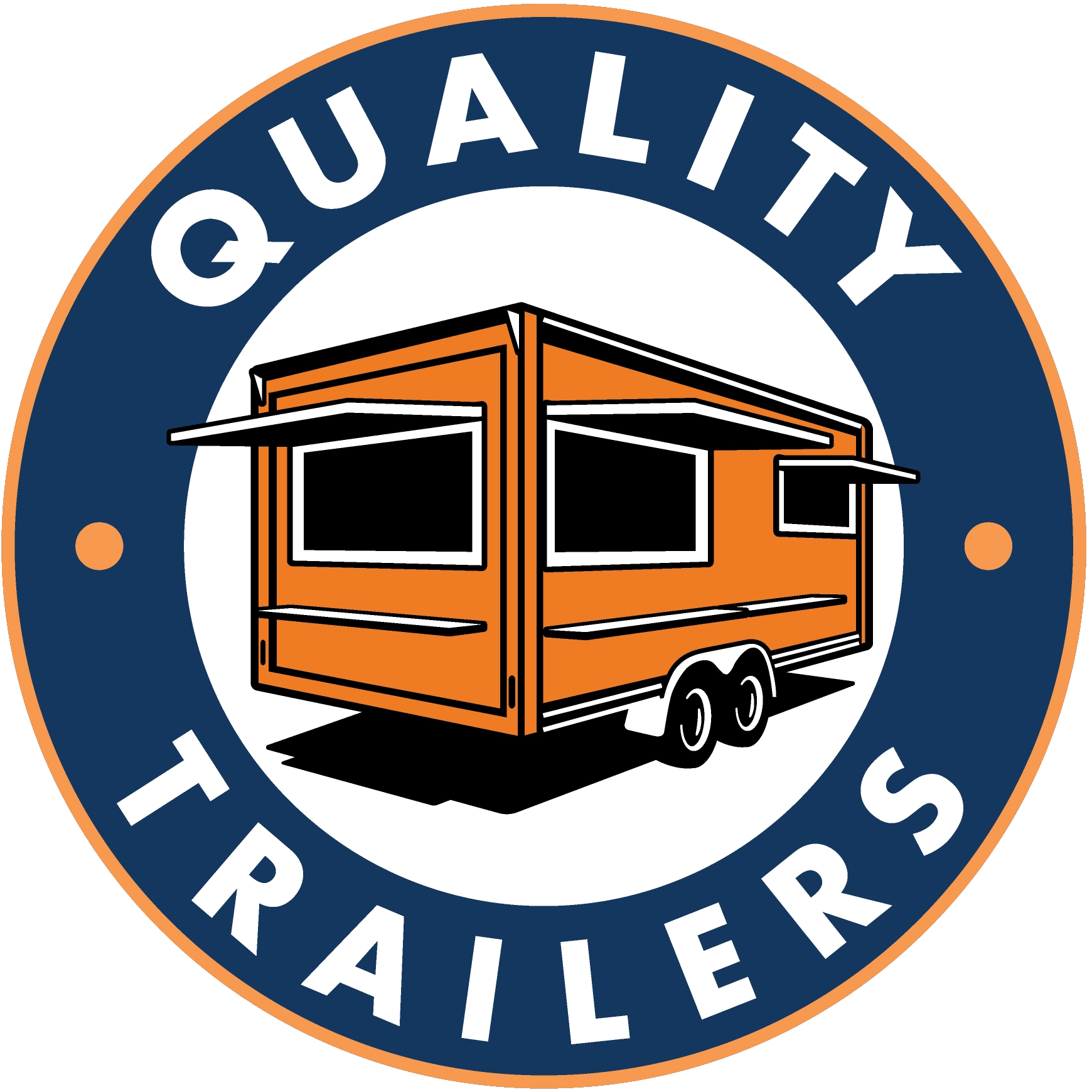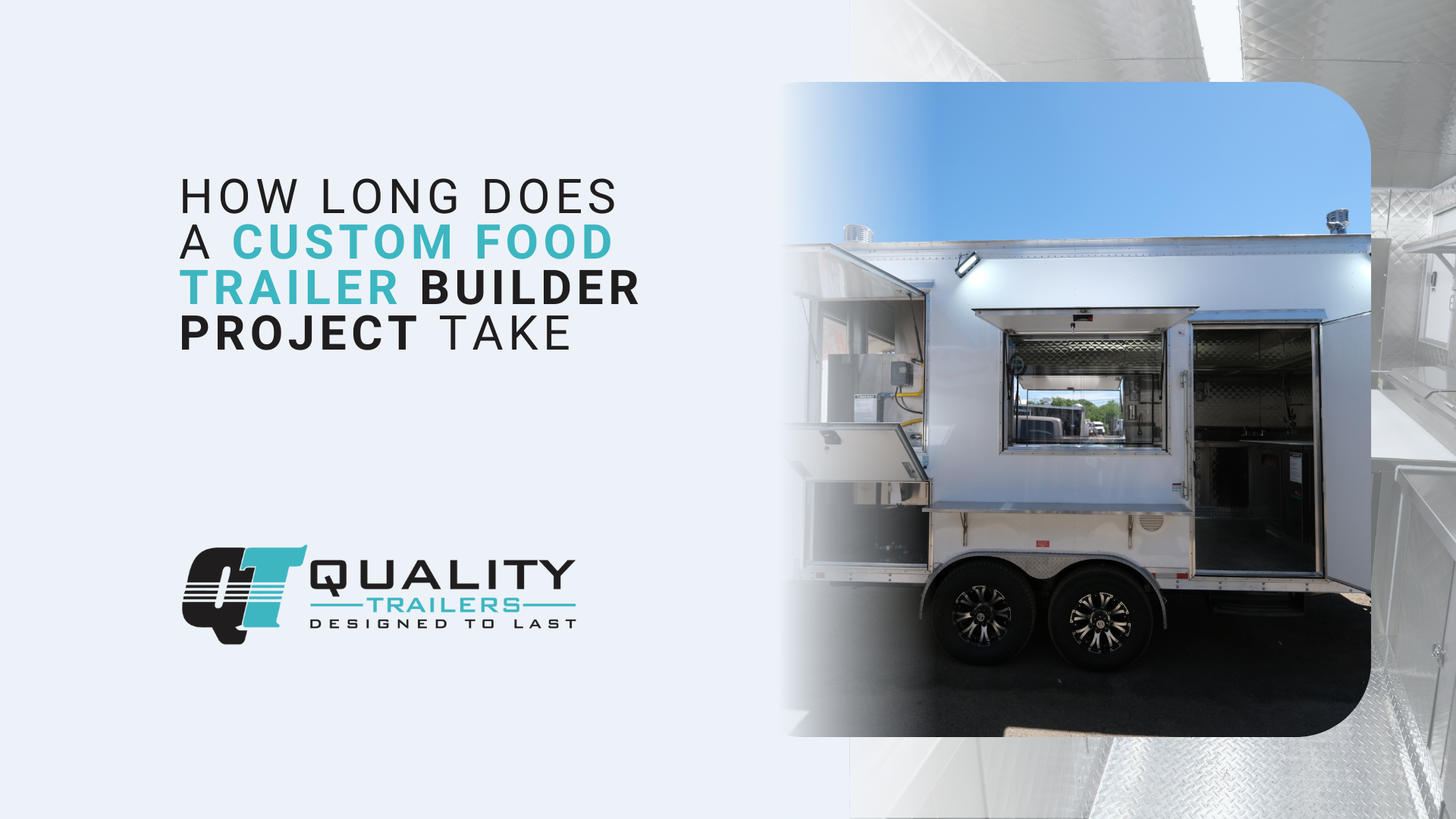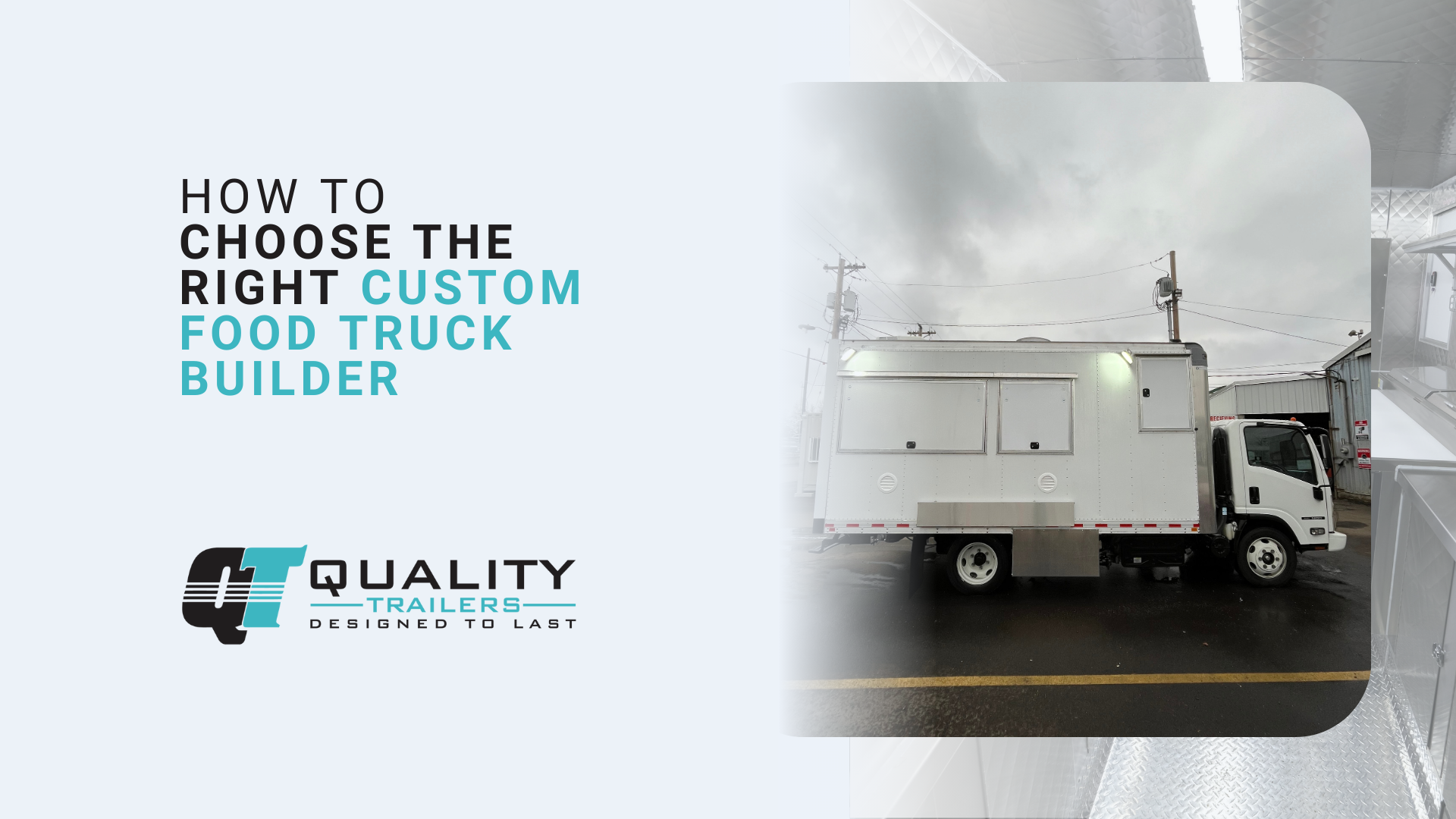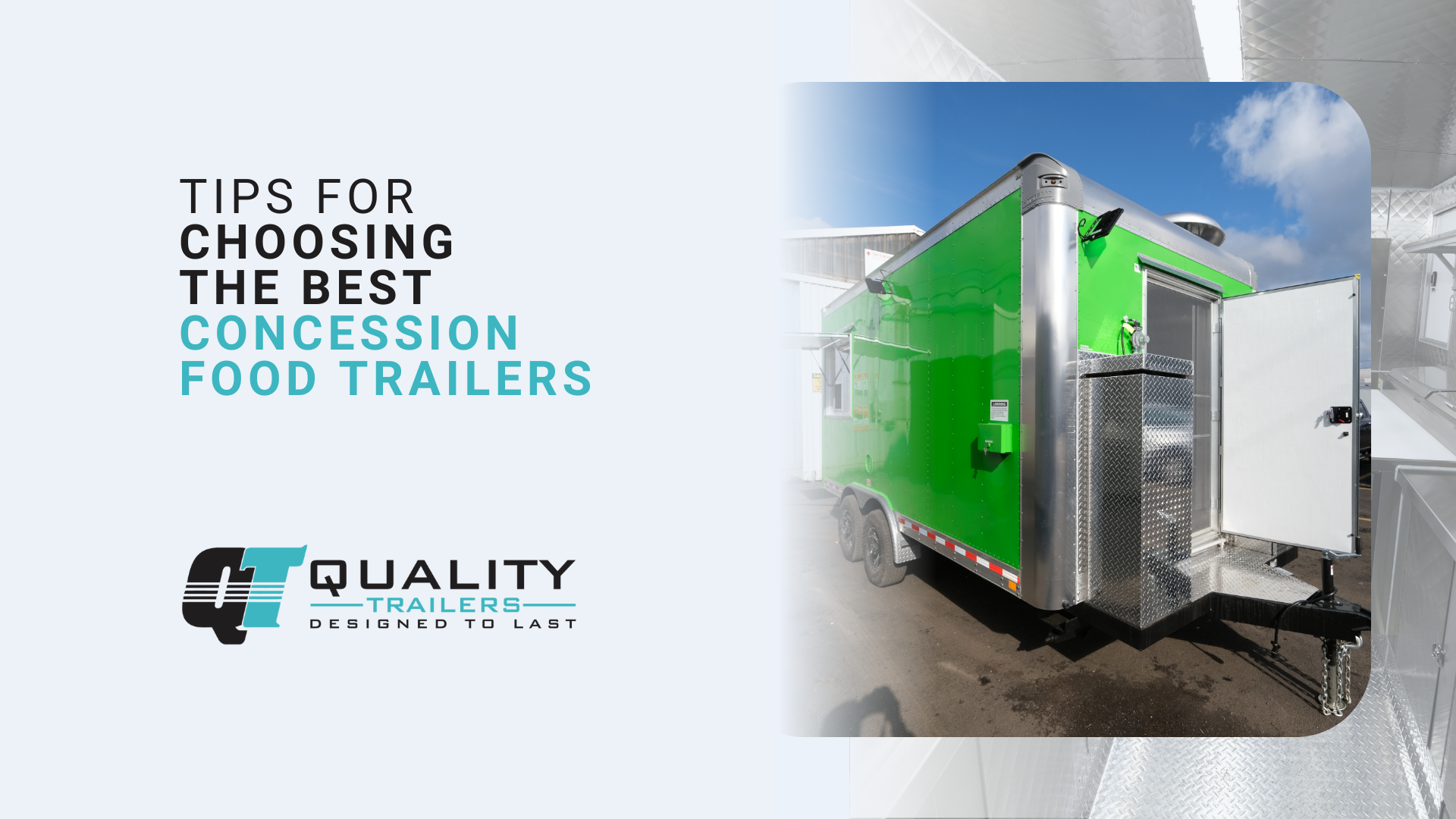Navigating the legal landscape of food trailer customization requires understanding complex regulations that vary by jurisdiction and operational scope. Every food trailer custom build must comply with multiple layers of oversight, from federal food safety standards to local parking ordinances. These requirements significantly impact design decisions, equipment selection, and ultimately, your ability to operate profitably. Understanding legal considerations before beginning customization prevents costly modifications and operational delays.
The intersection of mobile food service and regulatory compliance creates unique challenges not faced by traditional restaurants or standard vehicle modifications. Food trailers must simultaneously meet Department of Transportation requirements for safe road travel and health department standards for food service. This dual compliance requirement affects every aspect of customization, from structural modifications to equipment installation. Successful navigation of these requirements demands careful planning and often, experienced guidance.
Understanding Multi-Jurisdictional Code Compliance
Code compliance for food trailers involves navigating requirements from multiple regulatory bodies, each with specific areas of oversight. Federal regulations establish baseline standards for food safety and transportation, while state regulations often add additional requirements. Local jurisdictions typically have the most detailed requirements, addressing everything from equipment specifications to operational procedures. Understanding this regulatory hierarchy helps prioritize compliance efforts.
The complexity increases when trailers operate across jurisdictional boundaries. A food trailer custom built to meet requirements in one city might need modifications to operate legally in neighboring communities. Some jurisdictions reciprocate approvals, while others require complete re-inspection. Planning for multi-jurisdictional operation during initial customization saves time and money compared to retrofitting for compliance later. Understanding how to choose the right food trailer for your business needs includes evaluating where you plan to operate.
Navigating Health Regulations in Custom Designs
Health regulations form the foundation of food trailer customization requirements, dictating everything from surface materials to equipment placement. These regulations aim to ensure food safety through proper temperature control, contamination prevention, and sanitary operations. While federal guidelines provide baseline standards, state and local health departments often impose additional requirements based on regional concerns and past incidents.
Custom designs must incorporate health regulation requirements from the earliest planning stages. This includes ensuring adequate hand washing facilities, proper food storage separation, and appropriate ventilation over cooking equipment. The three-compartment sink requirement affects plumbing design and space allocation. Temperature monitoring capabilities must be built into both hot holding and cold storage areas. The FDA Food Code provides comprehensive guidelines that local jurisdictions adapt and enforce.
Essential Permit Requirements for Operation
Permit requirements extend beyond simple business licenses to encompass various operational aspects of food trailer businesses. Health permits typically require plan submission and approval before construction begins, followed by physical inspection before operation. Many jurisdictions issue separate permits for the mobile unit and each location where it operates. Understanding the full scope of required permits prevents surprise delays when preparing to launch.
Special event permits often differ from regular operational permits, sometimes offering streamlined approval for temporary operations. Commissary agreements typically accompany permit applications, demonstrating access to required support facilities. Some jurisdictions require separate permits for specific equipment like grills or deep fryers. Fire department permits may be necessary for propane systems or cooking equipment producing open flames. The Oregon custom food trailer permitting process exemplifies the comprehensive nature of permit requirements.
Critical Safety Standards in Trailer Construction
Safety standards for food trailers address both structural integrity for road travel and operational safety for food service. Department of Transportation regulations govern trailer construction, including weight limits, brake requirements, and lighting standards. These requirements affect frame design, axle selection, and overall layout possibilities. Exceeding weight limits not only violates regulations but creates dangerous operating conditions.
Operational safety standards focus on preventing fires, ensuring emergency egress, and protecting workers from injury. Fire suppression systems must meet specific standards for coverage and activation. Emergency exits require proper sizing, marking, and accessibility. Electrical systems need ground fault protection near water sources. Propane systems require specific ventilation and emergency shutoff capabilities. Understanding these safety standards during design prevents expensive retrofitting and potential liability issues.
Zoning Laws and Operational Restrictions
Zoning laws significantly impact where food trailers can operate, often proving more restrictive than health permits. Many jurisdictions prohibit food trailer operation in certain commercial or residential zones. Time restrictions may limit operational hours or days. Distance requirements from brick-and-mortar restaurants protect established businesses from mobile competition. Understanding local zoning laws helps identify viable operating locations before investing in customization.
Some jurisdictions require food trailers to operate on private property with owner permission, while others allow public right-of-way vending with appropriate permits. Parking duration limits may require regular movement, affecting equipment choices and setup procedures. Noise ordinances can restrict generator use or operational hours. The Portland food trailers food culture impact demonstrates how supportive zoning laws can create thriving mobile food scenes.
Documentation Requirements for Inspection Criteria
Meeting inspection criteria requires comprehensive documentation throughout the customization process. Plan drawings must show equipment placement, plumbing schematics, electrical layouts, and ventilation designs. Equipment specification sheets demonstrate compliance with commercial standards. Material certifications prove food contact surfaces meet safety requirements. This documentation package typically accompanies permit applications and must be available during inspections.
Inspection criteria vary by jurisdiction but typically encompass structural integrity, equipment functionality, and operational readiness. Inspectors verify plan compliance, test equipment operation, and confirm safety system functionality. They may require demonstration of proper procedures like handwashing and sanitization. Having organized documentation readily available streamlines inspection processes and demonstrates professionalism. Quality food trailer custom builders understand documentation requirements and provide comprehensive packages supporting permit applications.
Equipment Specifications and Regulatory Approval
Equipment selection for food trailers must balance operational needs with regulatory requirements. All equipment must carry appropriate certifications for commercial food service use. NSF certification indicates third-party verification of sanitation standards. UL listing confirms electrical safety. Equipment must be properly sized for the trailer’s utility capacities while meeting menu production needs.
Installation requirements often prove as important as equipment selection. Proper ventilation clearances, utility connections, and mounting methods affect both safety and inspection approval. Gas equipment requires specific clearances from combustibles and proper ventilation. Refrigeration needs adequate air circulation for efficient operation. Understanding best materials for durable food trailer builds includes selecting compliant equipment and installation materials.
Structural Modifications and DOT Compliance
Customizing food trailers requires careful attention to Department of Transportation regulations governing trailer construction and modification. Weight distribution affects handling safety and regulatory compliance. Modifications must maintain proper tongue weight ratios and not exceed gross vehicle weight ratings. Frame modifications require engineering approval to ensure structural integrity. These requirements protect both operators and other road users.
Lighting and marking requirements ensure visibility during transport. Breakaway brake systems provide safety if trailers become disconnected. Safety chains must meet weight ratings for the loaded trailer. Registration and inspection requirements vary by state but typically require annual renewal. Some states require commercial vehicle inspections for food trailers above certain weights. Planning structural modifications with DOT compliance in mind prevents registration and insurance issues.
Fire Safety and Suppression System Requirements
Fire safety represents a critical aspect of food trailer customization, with requirements typically exceeding those for traditional restaurants due to confined spaces and mobile operation. Cooking equipment producing grease-laden vapors requires Type I hood systems with appropriate filters and cleaning access. Fire suppression systems must protect all cooking surfaces with overlapping coverage zones. These systems require professional installation and regular inspection certification.
Beyond active suppression systems, fire safety includes proper construction materials, emergency exits, and portable extinguisher placement. Electrical systems must include appropriate circuit protection to prevent overheating. Propane systems require leak detection and emergency shutoffs accessible from outside the trailer. The National Fire Protection Association provides standards specifically addressing mobile food service operations.
Water and Wastewater System Regulations
Water system regulations ensure safe drinking water and proper wastewater handling in mobile environments. Fresh water tanks must be food-grade materials with appropriate venting and filling ports. Water heaters must provide sufficient capacity for handwashing and sanitization requirements. Backflow prevention devices protect water supplies from contamination. These systems require specific installation methods and regular testing.
Wastewater systems face equally stringent requirements. Gray water tanks must exceed fresh water capacity to prevent premature filling. Proper venting prevents odors and allows proper drainage. Disposal must occur at approved locations with appropriate documentation. Some jurisdictions require grease interceptors for certain menu types. The complexity of water systems often surprises new operators focused primarily on cooking equipment.
Electrical Code Compliance for Mobile Units
Electrical systems in food trailers face unique challenges from vibration, moisture, and high demand loads. The National Electrical Code includes specific provisions for recreational vehicles that many jurisdictions apply to food trailers. These requirements address wire sizing, connection methods, and protection devices suitable for mobile environments. Ground fault circuit interrupters must protect all outlets near water sources.
Power inlet connections must meet specific standards for weather resistance and amperage capacity. Interior wiring requires protection from physical damage through proper routing and conduit use where necessary. Circuit labeling helps operators and service technicians identify systems quickly. Emergency disconnects accessible from outside allow first responders to cut power safely. Understanding these requirements during design prevents costly rewiring after inspection failures.
Ventilation Standards and Air Quality Requirements
Proper ventilation extends beyond simple exhaust fans to encompass comprehensive air management systems. Mechanical ventilation must remove cooking vapors, excess heat, and combustion products while maintaining slight negative pressure. Make-up air systems balance exhaust removal to prevent operational problems. These systems must be properly sized for equipment heat output and cooking volume. Inadequate ventilation creates uncomfortable working conditions and potential health hazards.
Health departments specify minimum air change rates and hood coverage requirements. Hoods must extend beyond cooking equipment edges with proper capture velocities. Ductwork requires specific construction materials and cleaning access. Some jurisdictions mandate demand-based ventilation controls to reduce energy consumption during idle periods. The Portland custom food trailer design trends often incorporate innovative ventilation solutions meeting strict air quality standards.
Accessibility Requirements in Design
The Americans with Disabilities Act affects food trailer customization through requirements for customer accessibility. While full interior accessibility often proves impractical in mobile units, service windows must accommodate customers with disabilities. This includes appropriate counter heights, reach ranges for payment processing, and communication assistance. Some jurisdictions interpret ADA requirements more stringently than others.
Designing for accessibility from the beginning proves more cost-effective than retrofitting. This might include multiple service counter heights, visual menu displays for hearing-impaired customers, or stable surfaces approaching service windows. While exemptions exist for mobile units, demonstrating good faith efforts toward accessibility prevents discrimination complaints and expands your customer base. Understanding these requirements helps balance practical limitations with inclusive design.
Insurance and Liability Considerations
Legal compliance extends beyond permits to encompass insurance requirements protecting your business and the public. Most jurisdictions require liability insurance as a permit condition. Coverage must typically include general liability, product liability, and vehicle liability. Some locations mandate specific minimum coverage amounts. Understanding insurance requirements during customization helps ensure your design supports rather than complicates coverage.
Certain design features may affect insurance premiums or coverage availability. Properly installed fire suppression systems often reduce premiums. Security features like cameras and alarms may qualify for discounts. Conversely, unusual modifications or non-compliant installations might make coverage difficult or expensive to obtain. Working with insurance providers familiar with mobile food service helps identify design elements affecting coverage.
Interstate Commerce Considerations
Operating across state lines introduces additional legal complexities beyond local compliance. Interstate commerce regulations may apply, particularly for commissary requirements and food sourcing. Some states require separate licensing for out-of-state operators. Health inspection reciprocity varies, with some states accepting others’ certifications while many require complete re-inspection. Understanding these requirements prevents operational interruptions when expanding territorially.
Vehicle registration and insurance requirements also vary by state. Some states require commercial vehicle designations for food trailers, affecting insurance and inspection requirements. Weight limits and equipment restrictions differ, potentially requiring modifications for multi-state operation. Planning for interstate operation during initial customization proves more economical than retrofitting for compliance later. Learning how to start a mobile food trailer business from scratch includes understanding territorial expansion requirements.
Record Keeping and Compliance Documentation
Maintaining comprehensive compliance documentation protects your business during inspections and potential legal challenges. This includes initial construction documentation, equipment certifications, inspection reports, and permit renewals. Digital organization systems help manage the volume of required documentation while ensuring accessibility when needed. Many operators underestimate documentation requirements until facing inspection or insurance claims.
Operational records complement construction documentation. Temperature logs demonstrate food safety compliance. Cleaning schedules verify sanitation procedures. Maintenance records support equipment warranty claims. Employee training documentation proves safety protocol implementation. These records serve multiple purposes beyond compliance, supporting insurance claims, potential litigation defense, and business valuation. Establishing systems during customization planning ensures consistent documentation practices.
Common Compliance Mistakes to Avoid
Learning from others’ compliance mistakes helps avoid costly delays and modifications. Using residential-grade equipment in commercial applications violates health codes and voids warranties. Modifying approved plans without permitting authority notification can result in failed inspections and rebuild requirements. Assuming requirements match between neighboring jurisdictions leads to operational restrictions and fines.
- Installing equipment without required certifications, resulting in inspection failures and replacement costs • Inadequate ventilation system sizing, creating air quality issues and code violations • Improper water system connections, risking contamination and permit revocation • Missing or inadequate emergency exits, violating fire safety codes • Using non-commercial grade materials in food contact areas, requiring expensive replacement
Working with Code Officials and Inspectors
Building positive relationships with code officials facilitates smoother customization and inspection processes. Early consultation helps identify jurisdiction-specific requirements not obvious in written codes. Officials often provide valuable guidance on common problem areas and acceptable solutions. This proactive approach demonstrates professionalism and commitment to compliance, often resulting in more collaborative inspection experiences.
Approaching inspections as learning opportunities rather than adversarial encounters improves outcomes. Inspectors typically want to help businesses succeed while ensuring public safety. Being prepared with documentation, maintaining clean and organized trailers, and responding professionally to findings creates positive impressions. When violations occur, prompt correction and follow-up demonstrate responsibility. These relationships prove valuable throughout your trailer’s operational life.
Future-Proofing Designs for Regulatory Changes
Regulatory requirements continually evolve in response to food safety research, incident analysis, and technological advances. Designing flexibility into custom builds allows adaptation to changing requirements without major reconstruction. This might include extra electrical capacity for future equipment requirements, space allocation for potential additional handwashing stations, or ventilation systems capable of handling increased cooking capacity.
Monitoring regulatory trends helps anticipate future requirements. Energy efficiency mandates increasingly affect commercial cooking equipment. Water conservation requirements may impact system designs. Technology integration for temperature monitoring and reporting continues expanding. Building relationships with industry associations provides early warning of potential regulatory changes. The future of mobile dining custom food trucks includes adapting to evolving regulatory landscapes.
Cost Implications of Compliance Requirements
Understanding the financial impact of compliance requirements helps budget realistically for food trailer custom projects. Compliance costs extend beyond initial construction to include ongoing permit fees, inspection costs, and maintenance requirements. Commercial-grade equipment costs significantly more than residential alternatives but provides necessary durability and compliance. Professional design services ensuring code compliance represent valuable investments preventing costly retrofitting.
Operational compliance costs deserve equal consideration. Regular professional inspections of fire suppression systems, commissary fees, and enhanced insurance coverage all impact profitability. Some jurisdictions charge substantial fees for permits and inspections. Understanding these ongoing costs during planning helps price products appropriately and ensure business viability. Viewing compliance costs as investments in sustainable operation rather than burdens improves decision-making.
Regional Variations in Requirements
Significant regional variations in food trailer regulations require careful research when planning operational territories. West Coast jurisdictions often embrace mobile food service with supportive regulations and established permit processes. Some Midwest and Southern regions maintain more restrictive approaches, limiting operational opportunities. Urban areas typically have more detailed requirements but also more potential customers. Rural areas might offer simpler compliance but fewer venue options.
Climate influences regional requirements. Cold-weather regions may mandate specific winterization features. Hot climates often require enhanced ventilation and refrigeration capacity. Coastal areas might specify corrosion-resistant materials. Understanding regional variations helps make informed decisions about where to base operations and how to customize trailers for specific markets. The Oregon food trailer marketing strategies work well in supportive regulatory environments.
Professional Resources for Compliance Guidance
Navigating complex compliance requirements often benefits from professional assistance. Food service consultants specializing in mobile operations understand requirements across jurisdictions and can guide efficient compliance strategies. Attorneys familiar with food service regulations help interpret requirements and negotiate with regulatory agencies when needed. Professional designers experienced with food trailers incorporate compliance into initial plans, preventing expensive modifications.
Industry associations provide valuable resources for understanding and maintaining compliance. They often offer training programs, regulatory updates, and advocacy for reasonable requirements. Equipment manufacturers familiar with mobile applications can recommend compliant solutions. Networking with experienced operators provides practical insights into managing compliance requirements. These resources prove invaluable for both initial customization and ongoing operational compliance.
Why Choose Quality Trailers Inc for Your Food Trailer Custom Build
When embarking on a food trailer custom project, Quality Trailers Inc brings over 23 years of manufacturing expertise combined with comprehensive knowledge of regulatory requirements across multiple jurisdictions. Our family-owned business has specialized in compliant food trailer construction since 2010, developing deep understanding of code compliance, permit requirements, and inspection criteria. We’ve successfully built trailers meeting health regulations in numerous states, giving us unique insights into regional variations. Visit our homepage to see examples of our compliant custom builds.
Our design process begins with thorough analysis of your operational plans and applicable regulations. Our CAD designers create detailed plans meeting health department submission requirements while optimizing for your specific menu and service style. We maintain current knowledge of safety standards and zoning laws affecting mobile food service. Our builds incorporate features facilitating easy inspection approval, from proper documentation packages to strategic equipment placement meeting all code requirements. Request a custom quote to discover how we simplify the compliance process.
At Quality Trailers Inc, we understand that navigating legal requirements can feel overwhelming for new operators. That’s why we guide clients through the entire process, from initial design through final inspection. Our experience with diverse jurisdictions helps anticipate potential compliance challenges and address them proactively. We provide comprehensive documentation packages supporting permit applications and maintain relationships with code officials who trust our builds. Contact us today to learn how we can help you build profitable food businesses with quality trailers that meet all legal requirements while exceeding your operational expectations.
Frequently Asked Questions
How long does the permit approval process typically take for a custom food trailer?
Permit approval timelines vary significantly by jurisdiction, typically ranging from 2-8 weeks after plan submission. Complex custom designs or jurisdictions with backlogs may take longer. The process includes plan review, potential revision requests, and scheduling final inspections. Starting the permit process early in customization planning prevents delays in launching your business. Some jurisdictions offer expedited review for additional fees.
What are the most common code violations found in food trailer customizations?
Common violations include inadequate ventilation over cooking equipment, improper spacing between handwashing stations and food prep areas, using residential-grade equipment in commercial applications, insufficient hot water capacity, and missing or improperly installed backflow prevention devices. These violations often result from DIY builds or working with inexperienced fabricators unfamiliar with food service requirements.
Do I need different permits for different cities where I plan to operate?
Most jurisdictions require location-specific permits or licenses beyond your base health permit. Some cities participate in reciprocity agreements recognizing neighboring jurisdictions’ inspections, while others require complete re-inspection. Special event permits often differ from regular operational permits. Research each intended operating location’s requirements during customization planning to ensure your trailer meets all applicable standards.
How do safety standards differ between food trailers and food trucks?
Food trailers face similar food safety requirements but different vehicle safety standards compared to food trucks. Trailers must meet DOT requirements for towing safety including proper hitches, safety chains, and breakaway brakes. They typically have more flexibility in layout design without engine compartments but must ensure proper weight distribution. Fire suppression and emergency exit requirements remain similar for both mobile types.
Can I modify my food trailer after initial inspection and approval?
Any modifications affecting health or safety systems typically require re-inspection and approval. This includes moving or adding equipment, changing menu items requiring different equipment, or altering plumbing or electrical systems. Minor cosmetic changes usually don’t require re-inspection. Always consult your health department before making modifications to ensure continued compliance and avoid permit revocation.



